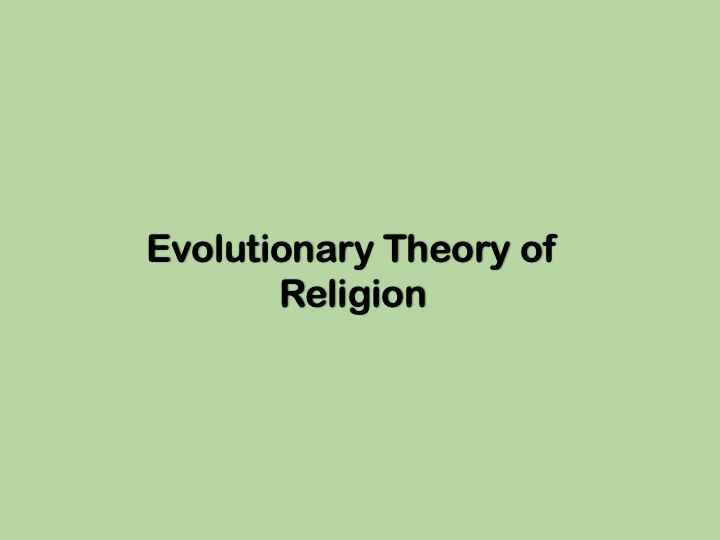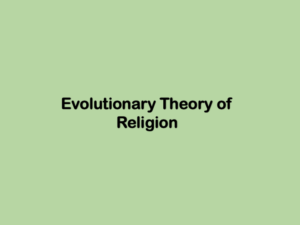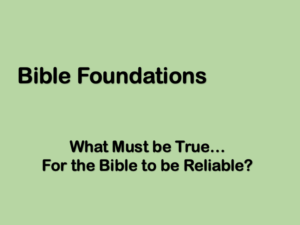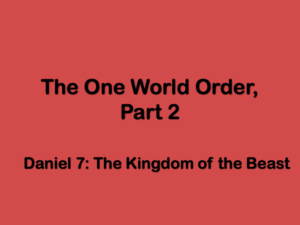Current Studies
A detailed study of the book of Daniel. Daniel is arguably the most important prophetic book of the Old Testament when it comes to studying eschatology, or the end times. If you ware looking for an in-depth study of what the Bible says about the end times, start here.
An overview of Biblical end times. The topic of Biblical end times is spread across many books of both the Old and New Testaments. If you want an overview of what the Bible says about the end times, start here.
Why a Skeptics Guide?
Welcome to the Skeptics Guide to the Bible! In this blog we build a picture of the reliability of the Bible.
As the title suggests, my goal is to examine the Bible in a skeptical manner. In modern usage, a skeptic is synonymous with someone who chooses to not believe, but the true meaning of a skeptic is someone who questions everything. That is what we will do in this blog: we will question everything. We will take nothing from granted. The goal is not to disprove the Bible, however, the goal is to determine if the Bible is reliable, or say it another way, can we trust the Bible. We will accomplish that by examining everything we know or think we know about the Bible, drill down through a series of questions until we determine what we know to be true. We then move on to another question. By establishing a series of small facts, we gradually build a bigger picture of the Bible’s reliability.
Two Big Questions
This blog focuses on two primary questions. The first question is, not surprisingly, “Is the Bible Reliable?” Before we look to the Bible for answers, we want to know if we can trust it. Does it mostly get things right, or is it full of errors? Is it a collection of dated myths and stories or does it contain universal truth? Was it written by a bunch of confused ancient men, or did God guide the writing?
The second question is perhaps a little timelier. The last few years have been very strange, to say the least. In fact, events have been so strange that some have begun to wonder if something supernatural is occurring; some events just don’t seem to have a rational explanation. In turn, this has led to a great deal of curiosity about the Bible, what it says, what it means, but perhaps more specifically what it says about the end times. This trend has led to the second question: does the Bible explain why the world looks like it does today? In other words, did the Bible tell us this was going to happen? Does it tell us what is going to happen next?
The Audience
These two questions, “Is the Bible reliable?,” and “Does the Bible predict the future?” form the backbone of this blog. These are two questions that have consumed my life over the last decade or so, and is some way, this blog allows me to organize and communicate my thoughts.
I’m approaching this blog as a believer, which means I believe the Bible. I believe every word is important, I believe the Bible usually means what it says, and more importantly, I believe that Jesus was the Messiah and he died on the cross for our sins. I also believe the only way to salvation is through faith in Jesus Christ.
I believe these things because this is what the Bible says. My goal is not to convince you, or to convert you. My goal is to explore the evidence. I will show you what the evidence is, but you will have to make up your own mind. I don’t need to defend the Bible. I think the Bible speaks for itself.
That said, this blog will not appeal to everyone. If you are a devout atheist or reject any concept of God and the supernatural, or perhaps you hate God and what he stands for, then this blog is probably not going to resonate with you. You’re more than welcome to read the blog, and even comment, since truth is usually found through discussion.
If you are unsure about life, the universe and everything, but are interested in finding answers, I hope you will find this blog helpful. You do have to keep an open mind and you do have to be open to the possibility of the supernatural.
Maybe you are not new to the Bible but want to know why your church believes certain things, or maybe you don’t know a lot about the Old Testament or Biblical end times. Since we’re going to spend a lot of time on those topics, I hope you find this blog useful as well.
As I said above, truth is arrived through discussion, and my hope is this blog serves as a catalyst for discussion. You will probably not agree with everything I write, and I will almost definitely get some things wrong. Speak up! If you have additional information, share it! If you have questions, ask them! All questions and comments are welcome, but they must respectful and collegial. We want honest discussion, not name calling. Only comments that meet these guidelines will be allowed.
Three little questions
If we want to answer the two big questions, we obviously have to study the Bible, which means we have to read it. When we read it, we are going to continually ask three subordinate questions:
1. What does the Bible say?
2. What does the Bible mean?
3. Is the Bible reliable?
What does the Bible say?
You can’t know what the Bible says if you don’t read it, so we are going to read the Bible, verse by verse. When we find something we need to clarify, we’ll dive into that topic. Hopefully we will get through the entire Bible, but we’re going to start in just one book, the book of Daniel. We will read Daniel all the way through it, studying each part. Then we’ll examine and summarize everything we have learned. Then we’ll start another book.
What does the Bible mean?
Many times, the Bible is straight forward and easy to understand. Sometimes it is not so easy to understand. It probably comes as no surprise that not all Bible scholars agree on what certain Bible passages mean.
There is plenty of controversy about the Bible and quite a bit of disagreement, so when we interpret the Bible, we will use the most grammatically simple and straight forward interpretation. This can be summarized as “The Bible means what the Bible says.” We will only rely on the Bible, which means we give anything outside of the Bible much less weight. If the Bible doesn’t say something, we’re not going to take it as fact. This is known as sola scriptura, or by scripture alone.
Is the Bible Reliable?
Does the Bible get it right? Is it supported by history and archeology? Does it tell a consistent story or does it contradict itself? In order to answer these questions, we have to test the Bible. We’ll explore history, we’ll explore archeology, we’ll explore possible contradictions and errors. We’ll look at criticisms of the Bible and we’ll look at responses to those criticisms. We’re not going to find answers to every question we ask, but when we do find answers, we want to know how often does the Bible got it right. In the end, we want to know if the Bible got the little details right so we can determine if we can trust it on the big questions.
Why Start with the Book of Daniel?
At first glance, Daniel does not seem an obvious place to start. Why not Genesis, with its story of creation and a world-wide flood? Why not the gospels with the divinity and resurrection of Jesus? Those all are all essential topics of the Bible, and we’ll get into those, time allowing.
Daniel is one of two major prophetic books in the Bible that deals with the end times, but Daniel also contains a lot of other prophecies besides the end times, and since Daniel was written over two thousand years ago, many of these predictions have come to pass. If Daniel got those predictions right, shouldn’t we trust the other predictions it made, the ones that will be fulfilled in the last days?
Importantly, if we want to know what the Bible says about the end times, Daniel is where we start. Revelation is the second major book in the Bible that deals with the end times, and it is the last book of the New Testament. Since Revelation builds on the foundations laid by Daniel, we must read Daniel first before dealing with Revelation. Along the way we’ll flesh out the picture with other books of the Bible. It’s a huge task and will take some time to accomplish, so let’s get started with the Book of Daniel.
Before we start, let me ask you a question. If you could trust the Bible, and you believed what it says, would that change your life?


















